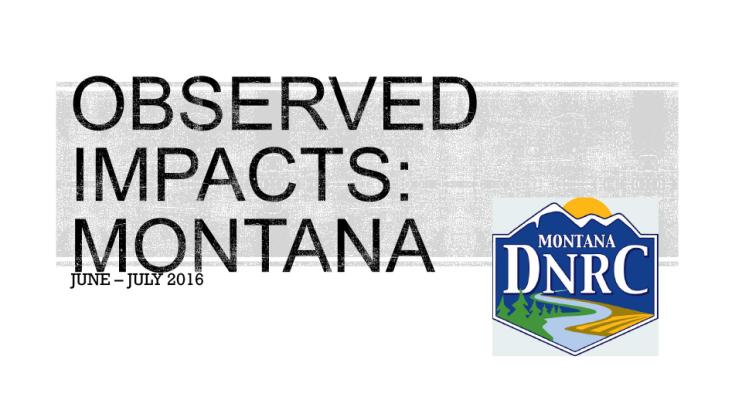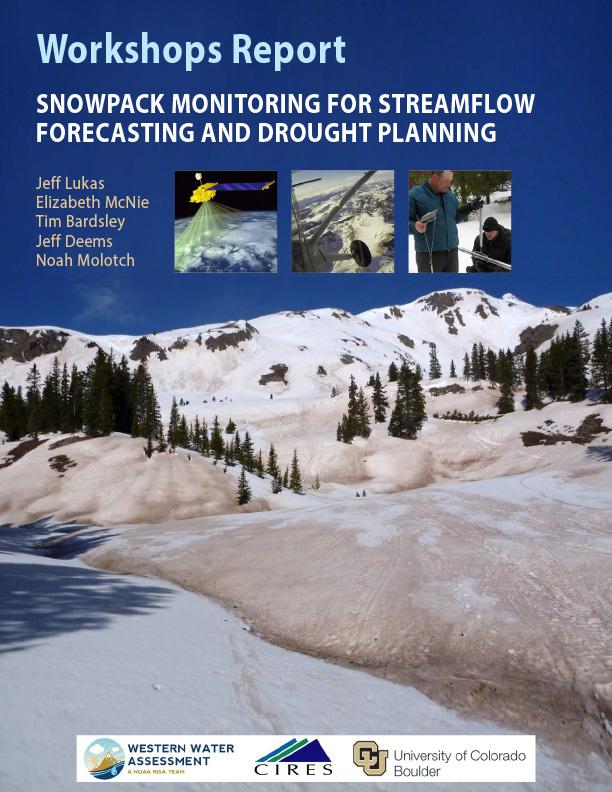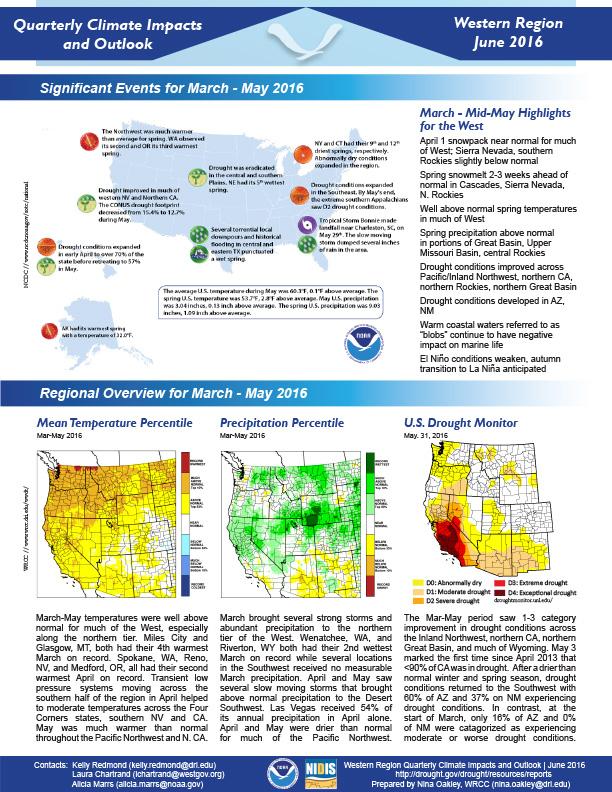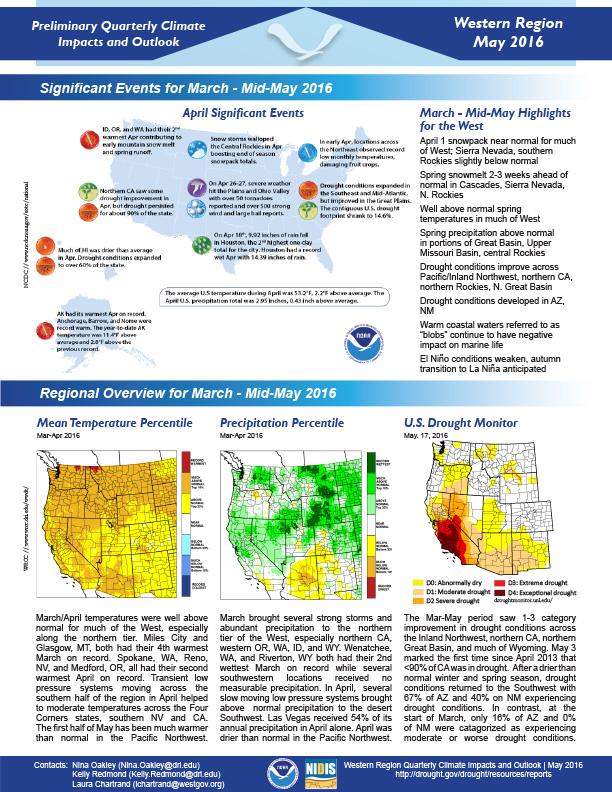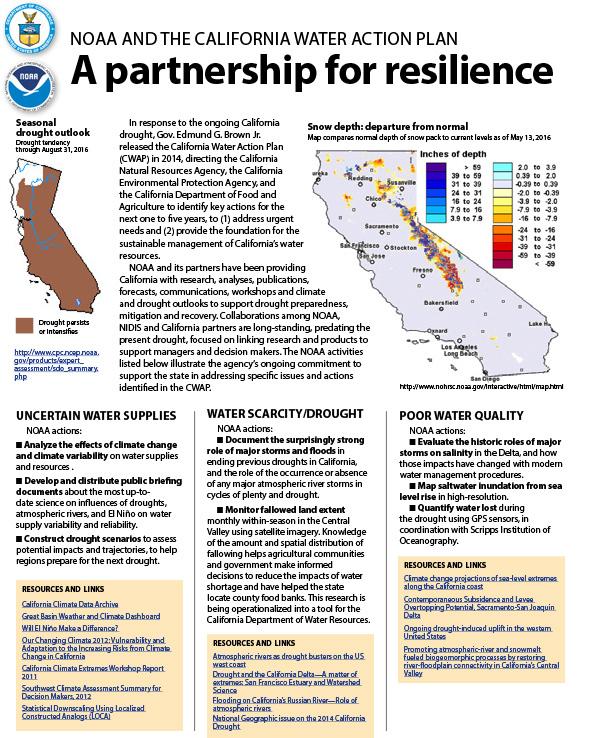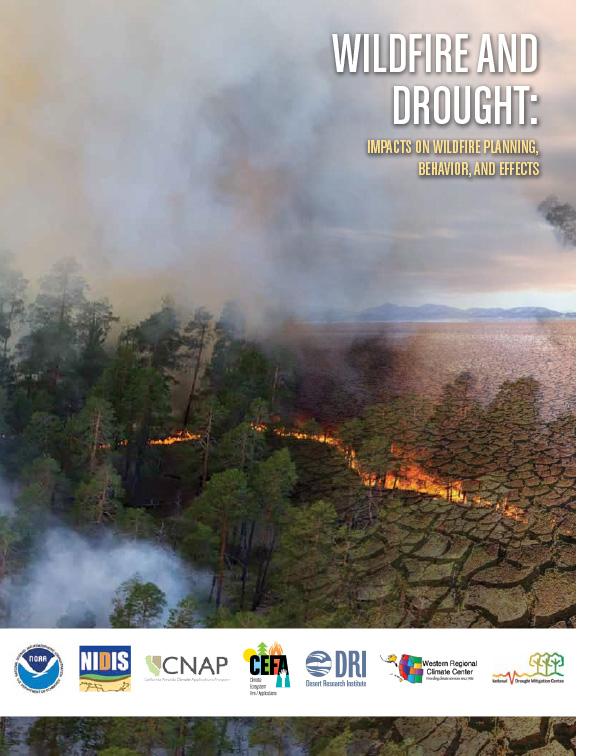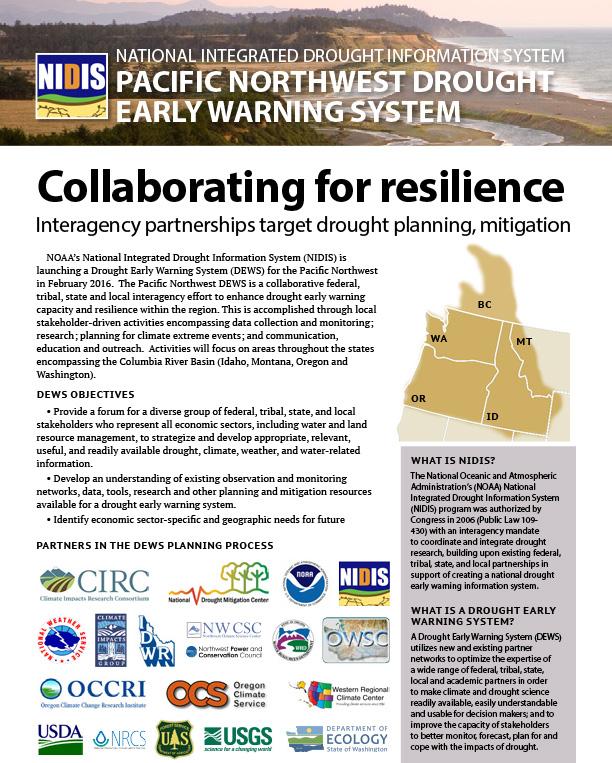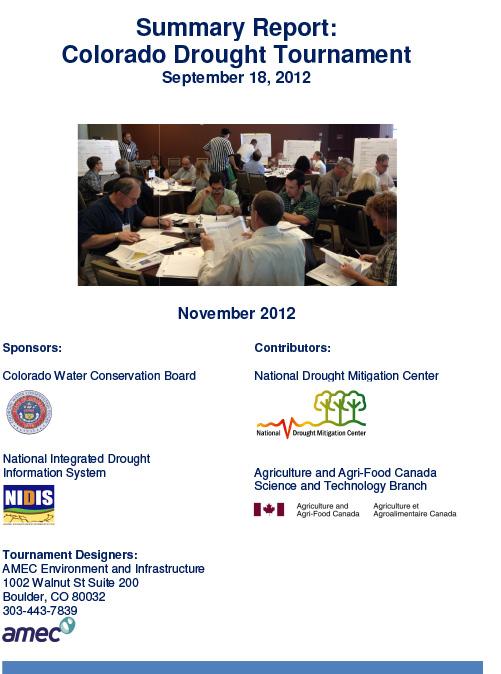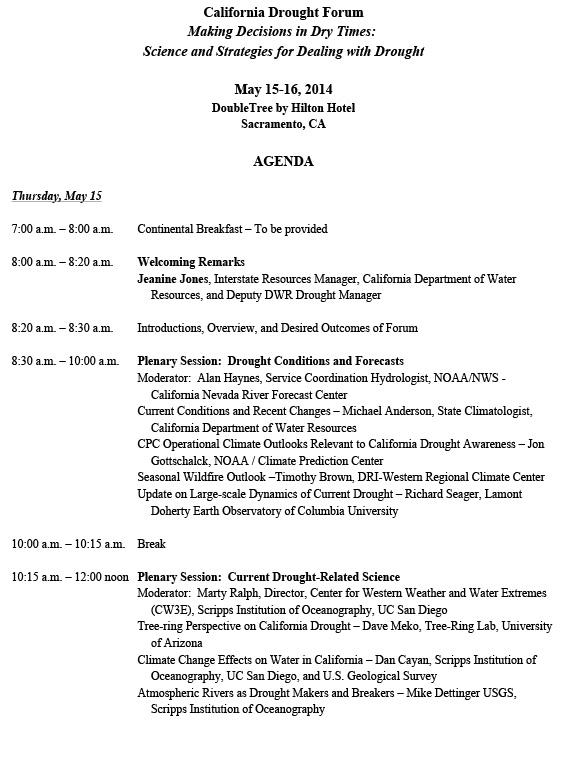As last year’s El Niño continues to deteriorate, CPC has issued a La Niña watch as conditions favorable to the development of an (albeit weak) La Niña are expected to continue during August-October. CPC is predicting a 55-60% chance of La Niña occurring during the fall and winter of 2016-17.
Previous La Nina’s have brought cooler and wetter conditions to the Pacific Northwest during winter months.
Slides with maps show:
Despite some relief in early July when substantial precipitation fell in some basins, precipitation overall has been well below average through July along the Rocky Mountain Front and Upper Yellowstone for the second year in a row. Above-average temperatures coupled with diminished snowpack also led to early runoff. Low soil moisture levels depicted by NASA GRACE models illustrate the lack of June precipitation which impacted shallow groundwater and root zone moisture particularly along the Rocky Mountain Front and Upper and Lower Yellowstone.
For water providers and others in the Rocky Mountain West who depend on the pulse of runoff from the melting snowpack from April through July, snowpack monitoring is drought monitoring. A well below average snowpack as measured by snow-water equivalent (SWE) is a harbinger of not only low water supply but also other drought impacts, such as increased fire risk and below-normal summer soil moisture.
Quarterly Climate Impacts and Outlook for the Western Region March – May 2016. Dated June 2016.
Significant events, regional overview of conditions in the West and outlooks for precipitation, temperature and wildfire as of May 2016.
Describes NOAA activities through May 2016 in support of the California Water Action Plan (CWAP).
The National Integrated Drought Information System, in partnership with NOAA’s Western Regional Climate Center (WRCC), the California Nevada Applications Program (CNAP, a NOAA Regional Integrated Science Applications team), the Desert Research Institute (DRI), and the National Drought Mitigation Center (NDMC), hosted the “Integrating Drought Science and Information into Wildfire Management Workshop” in Boise, Idaho on 21-22 October 2015. Seventeen federal, state, NGO, and academic entities attended the workshop.
Describes the planning process leading up to the launch of the Pacific Northwest DEWS.
Summary of tournament’s background, design, development and delivery, with feedback on the activity’s strengths, areas for improvement and possible future applications.



